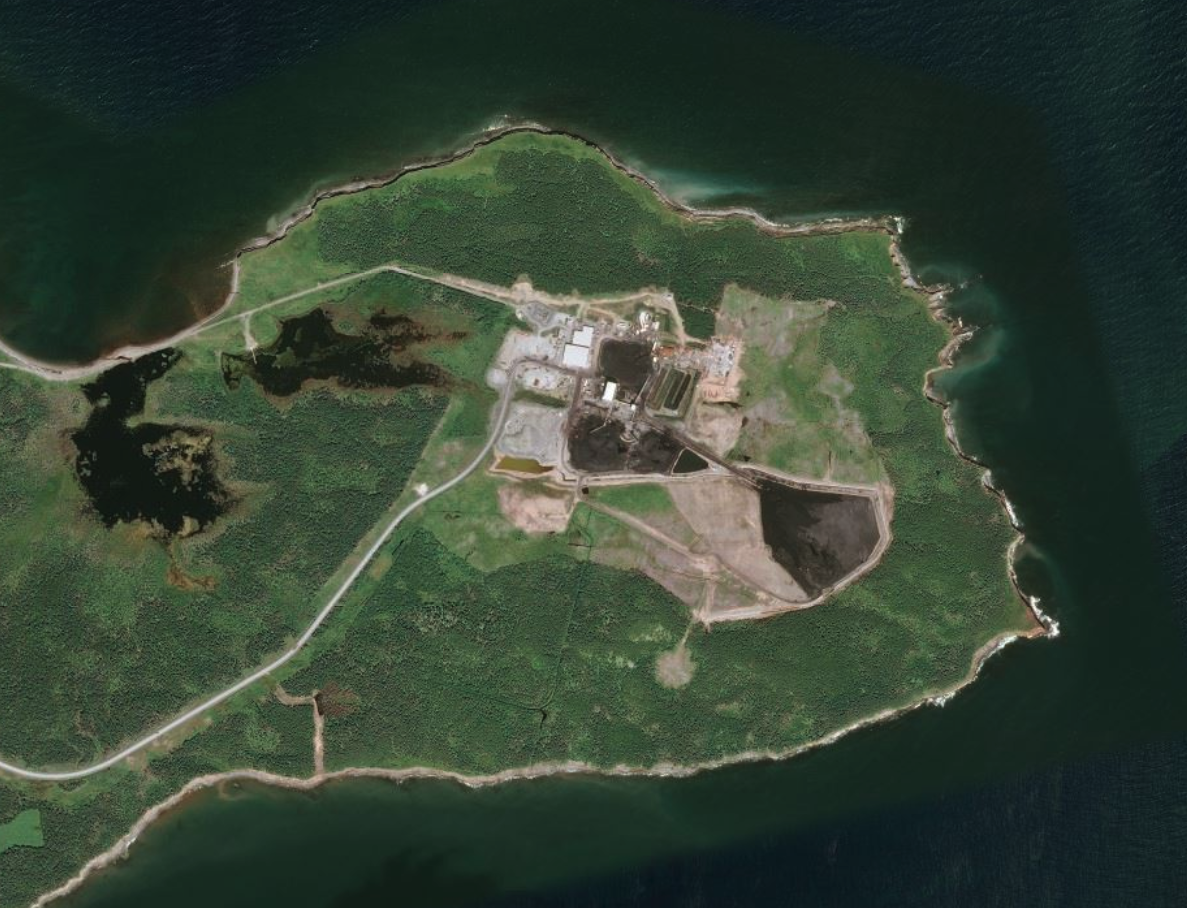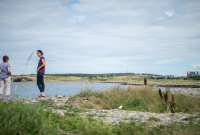Support strong Canadian climate journalism for 2025
A national environmental group has filed an appeal to the province of Nova Scotia, calling for Canada’s only underground coal mine's recent approval to be overturned.
Sierra Club Canada’s Atlantic chapter argues the industrial approval granted to the Donkin coal mine in Cape Breton should be overturned because it violates the province's Environmental Act along with other key legislation and policies. The group has called for the closure of the mine over the past several years.
In December, Donkin got the green light to operate the mine until the end of 2029 from Nova Scotia’s Environment and Climate Change department. Last week, the mine was classified as a “large emitter,” making it part of the province’s output-based pricing system — an alternative to the federal carbon price — and was confirmed to be the province’s second largest greenhouse gas emitter.
The Sierra Club, the environmental group that filed the appeal, said that designation plus an approval to keep operations going for at least seven years doesn’t add up.
“Minister [Timothy] Halman has finally acknowledged the Donkin coal mine’s huge carbon footprint, referring to it as the second largest greenhouse gas emitter in Nova Scotia,” said Tynette Deveaux of the Sierra Club’s Beyond Coal Atlantic campaign.
“So why is his government allowing the mine to continue operating until 2030? Where’s the ‘sustainable prosperity’ that Premier [Tim] Houston promised the people of this province?”
In the submission, the group outlines five areas of concern they think merit an overturn of the approval:
- Impact of greenhouse gas emissions and ability to meet provincial targets not considered
- Lack of independent monitoring from contaminants from the mine
- Failure to remediate/compensate for wetlands loss
- Noise pollution for residents
- The impact of trucking coal on local roads
The submission says the initial approval of the Donkin mine in 2013 didn’t say the primary means to move the coal from the mine would be on trucks travelling on local roads. Rather, it called for a wharf to be built where most of the coal would be loaded onto barges and only a bit carried by trucks to supply local customers.

A 2013 report from the Canadian Environmental Assessment agency, now the Impact Assessment Agency, said: “Ground transportation of coal off-site will only occur in exceptional circumstances and will be of short duration.”
However, the wharf was never built. Residents describe constant disruption and safety concerns from coal trucks, which need to drive down the centre line of the road because of their size, in some cases leading to accidents. It adds to other concerns around noise pollution due to the ventilation fans at the mine.
“The coal trucks are on the roads from early in the morning until 2 or 3 a.m.,” said LeRoy Peach, who lives near the mine.
“There are hundreds of truckloads of coal barrelling through our communities every week. It’s dangerous. We never agreed to this.”
Both the province and Kameron Coal, the owner of the mine, were contacted for comment but did not provide a response in time for publication. The appeal was filed to Environment Minister Halman, who is required to make a decision within 60 days.
The Canadian Association of Physicians for the Environment NS, which is a group of around 70 health-care professionals, sent a letter in support of the appeal.
“We are concerned that Kameron Coal has not sufficiently considered the health of workers and local communities in its operations,” reads the letter, which notes concerns for worker safety along with the health of people living in the area.
The Sierra Club notes a 2018 report from a peer-reviewed scientific paper by BMC Public Health, which said there is “consistent evidence” with higher rates of respiratory diseases and cancer in populations near coal mines.
Their submission also highlights concerns about water contamination, expressing worries the province isn’t conducting testing to measure potential impacts to waterways and wildlife while relying on Kameron Coal to self-report to government.
“The contaminants from the coal piles, including acid mine drainage and a toxic soup of chemicals from coal waste rock piles, appear to be draining into the surrounding wetlands,” reads the submission.
This article has been updated to reflect that the Donkin Mine's industrial approval expires at the end of 2029 and that the Sierra Club's submission was specifically to appeal the industrial approval of the mine.






Comments
The coal industry ignoring human and animal life so they can make profits at everyones expense.
Greedy people lack empathy. Caring and being concerned about the feelings of other is not part of their repertoire. As such, they have little qualms about causing pain to others. Their inability to empathize, their lack of genuine interest in the ideas and feelings of others, and their unwillingness to take personal responsibility for their behavior and actions makes them very difficult people to be with.Manfred F.R. Kets de Vries
This is a greedy industry just like O&G.
Canada’s Impact Assessment Agency leaves to be desired.